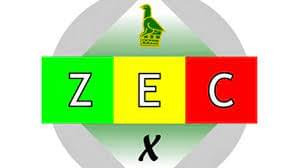This week, we digress a little bit and add our two cents to the debate on the registration of political parties.
Therefore, this piece is a personal view on this debate which I believe is important to this pertinent discourse.
Recently, Zimbabwe Electoral Commission chairperson, Justice Priscilla Chigumba, suggested that Zimbabwe should start registering political parties.
These mushrooming political entities are sometimes chaotic and when informed that their papers are not compliant with the Electoral Act, they make appeals which have the effect of delaying the printing of ballots until that dispute is resolved.
In some cases, there were issues of forum shopping wherein those who failed to get their desired outcome in one court would take their appeal to a completely different court located far away from where they just failed.
This delayed the printing of such ballots and through that, the delivery of the ballots and hence the delay in the voting process in other areas.
Eventually, nobody was disenfranchised but the chaos that reigned on the day needs to be addressed.
Part of the solution to the problem is to make it mandatory for political parties to be registered so that attention seeking opportunists can be whittled down to the barest minimum.
This will also deal with the issue of long and unwieldy ballot papers witnessed in both the 2018 and the 2023 harmonised elections.
In this week’s piece, we will explore Justice Chigumba’s suggestion.
Zimbabwe has experienced a number of fly-by-night political parties which just appear around elections, cause a bit of chaos, then disappear again with some re-appearing in five years while some are never seen again.
Some of these are just made up of members of a family who manage to cajole some nomination signatures from a few friends and relatives to meet the requirements of the Nomination Court.
But is this the system we really want or need?
Political parties in Zimbabwe do not have to legally exist between elections.
They can only exist at the elections where they have to meet the formalities required by the Electoral Court then disband.
As we navigate the complexities of modern democracy, it is easy to overlook the fundamental components that ensure its proper functioning.
One such crucial element is the registration of political parties.
In this op-ed, we will explore the significance of registering political parties and why it is essential for maintaining healthy democratic governance.
First and foremost, registering political parties provides a sense of legitimacy and accountability.
When a political party registers, it is a public declaration of its existence, values, and goals.
This transparency allows citizens to make informed decisions on which parties align with their beliefs and values.
Registered parties are also more likely to be held accountable for their actions, as they are subject to scrutiny and oversight from electoral authorities and the public.
Registration also ensures that political parties operate within established legal frameworks.
This prevents the proliferation of fringe or extremist groups that may otherwise exploit loopholes and undermine democratic institutions.
By registering, parties demonstrate their commitment to operating within the bounds of the law and respecting the democratic process.
There has to be particular qualifications which should be met before an entity is registered as a political party.
The current law we have only guides how political parties should conduct themselves in an election season because it is in the Electoral Act.
But when parties are now registered, there must be clear regulations on how they should behave all year round and at any time including in between elections. There must be guidelines on who is not qualified to hold political office in these registered parties. In short, there cannot be registration without regulation.
The behaviour by some parties after elections particularly the tendency to undermine the independent election bodies indicate that should political parties be registered, that would enhance the integrity of electoral processes.
This is because currently people know that when they lose elections, they can simply go back to their constituents and stakeholders and claim rigging with no negative consequences to themselves.
Under normal circumstances, political leaders who fail to procure power have to relinquish the leadership of their entities so that a different leader can give it a go.
But once one claims that they lost through rigging, they have to be given another chance.
This has to go on and on and they use whatever political clout they may have to undermine the legitimacy of the winner for their own political expediency.
Even when impartial courts would have adjudicated over the dispute and concluded that the elections were lost fair and square, these political leaders benefit politically from maligning the process and the outcome.
Surely, if political parties were registered, that is a case for deregistration.
Yes, there must be consequences for misdirected intransigence against a process that underpins our democracy. We should allow only legitimate political parties to partake in processes and not those who do not respect the system they depend on to give them legitimacy.
By verifying the authenticity and legitimacy of political parties, electoral authorities can prevent fraud and ensure that only genuine parties participate in elections.
This safeguards the sanctity of the ballot and maintains public trust in democratic institutions.
While election observers’ reports are advisory and non-binding, there are times when their suggestions find convergence with national aspirations.
Most observers’ reports in the 2018 harmonised elections did suggest that Zimbabwe needed to institutionalise political parties that participate in its electoral processes through some kind of registration process.
I think having no law to govern the formation, registration and behaviour of political parties is what has led to certain entities taking anti-Zimbabwe positions and still be allowed to try to gain power to serve interests foreign to those of our country.
At the heart of any legitimate political party that should be allowed to be registered and contest elections is its own internal processes that produce office bearers and election candidates.
Surely, if we argue that some opposition parties represent a government in waiting, what sort democracy do we aspire to have this country when those who have no internal fairness in their parties are ironically expected to advance our democracy if they eventually wrest power through a national democratic process?
There must be an eligibility test for political parties.
Through this, we can avoid the administrative nightmare that ZEC suffers when unelected leaders of political entities try to impose their cronies and relatives as candidates while others in the same formations try to resist and we end up with double candidates for the same party representing the same constituencies.
Sometimes these will be competing against some fly by night fringe parties whose role is only to add confusion and create a mile-long ballot paper obfuscating the informed choice formulating process for the electorate.
We should have a system where only serious political parties can pass the eligibility test and should be allowed to contest elections. Let us have a system that weeds out jokers from our electoral processes.
Finally, registering political parties fosters stability and continuity.
When parties are registered, they are more likely to develop robust structures and institutions, ensuring their survival beyond individual leaders or personalities.
This promotes a sense of continuity and stability, allowing parties to develop long-term policies and programmes that benefit society as a whole.
In conclusion, registering political parties is a vital aspect of democratic governance.
It ensures legitimacy, accountability, and a level playing field, while preventing the exploitation of loopholes and promoting political stability.
As we strive to build stronger, more resilient democracies, let us not overlook the importance of this fundamental component.
Nick Mangwana is the Permanent Secretary for Information, Publicity and Broadcasting Services












